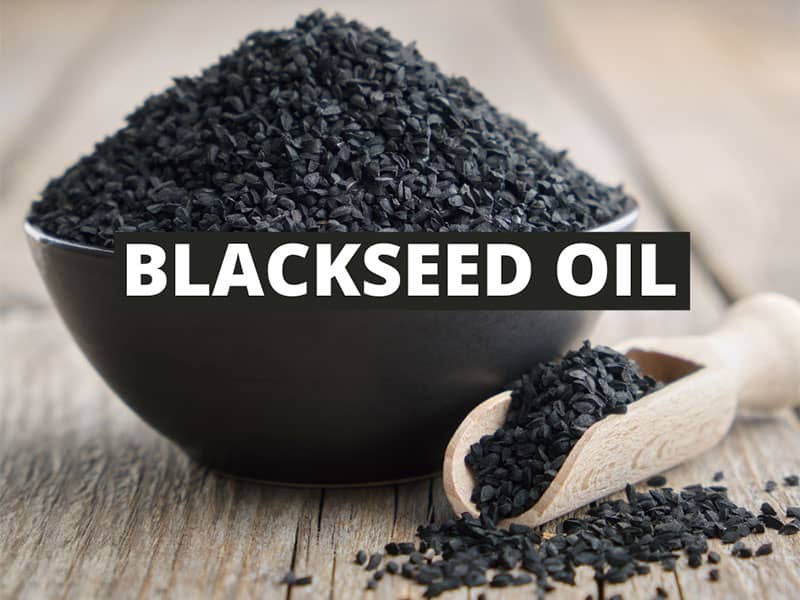Black Seed Oil (Nigella Sativa) is a small flowering plant that grows in Southwest Asia, the Middle East, Southern Europe, and Northern Africa.
This shrub also produces fruit with tiny black seeds, commonly referred to as black seed. It also goes by many other names including black cumin, black caraway, nigella, fennel flower, and Roman Coriander.
Black seed oil has been uses in traditional medicine for over 2,000 years due to its many therapeutic benefits, the phytochemical rich oil has been both applied topically and taken internally to treat a wide variety of health conditions.
What are Phytochemicals?
Black seed oil gets its benefits from the presence of three natural chemicals: thymoquinone, thymohydroquinone, and thymol. These phytochemicals are a powerful triple threat, and studies show together or individually they have impressive effects against many pathogens, diseases, and inflammatory conditions. Also, black seed oil may help protect the health of many of our organs.
Health Benefits of Black Seed Oil
- High in antioxidants that help protect cells against damage caused by unstable molecules called free radicals https://www.ncbi.nlm.nih.gov/pmc/articles/PMC5633670/
- Reduces nasal inflammation such as allergies, sinus, nasal congestion, sneezing, itching, and running nose
- May help in treating asthma
- Promotes liver health
- May aid weight loss efforts
- May lower blood sugar levels
- Can help lower blood pressure and cholesterol levels
- May protect brain health – neuroinflammation is inflammation of brain tissue. It’s thought to play an important role in the development of diseases like Alzheimer’s and Parkinson’s https://pubmed.ncbi.nlm.nih.gov/22810217/
- Antifungal properties, candida albicans is a common cause of vaginal and oral thrush, but the antifungal properties of blackseed oil may keep yeast from overgrowing in the body
- Can be beneficial for skin and hair – such as acne, eczema, general dry skin, psoriasis
- Can reduce symptoms of rheumatoid arthritis
Potential side effects and safety concerns
In general, short-term use of 3 months or less hasn’t been linked to any serious side effects. However, in one study, taking 1 teaspoon (5mls) of blackseed oil per day for 8 weeks did cause nausea and bloating in some participants.
One potential concern is that black seed oil may interact with medications that are processed through the cytochrome P450 pathway. Common medications that could be affected include Warfarin (Coumadin) and beta-blockers like Metoprolol (Lopressor)
Due to limited research, women who are pregnant or breastfeeding should avoid using black seed oil, except for in small amounts.
When choosing an oil, many consumers prefer to buy a product that is cold-pressed and organic to make sure that the oil is in its most natural state. Read labels carefully to make sure that other ingredients haven’t been added to the product you choose.
Black seed oil uses
If you’re looking to expand your palate, you can incorporate black seeds into your dishes. You could try them toasted and sprinkled on flatbreads like naan, bagels or biscuits, added to soups, curries and and stir-fries. You can grind them and mix them with other seasonings like mustard, fennel, and cumin seeds. You can also purchase black seed oil at most health stores and pharmacies. The oil is often packaged into capsules for daily consumption. It’s also sold as an oil that can be applied to the skin and hair or taken by the spoonful.
Make an appointment with us before using this supplement regularly so that we can make sure it won’t interfere with any medications you’re taking. It’s important to design a tailored plan to address your specific health concerns and to make sure you’re taking the right supplements in the right dosage.









